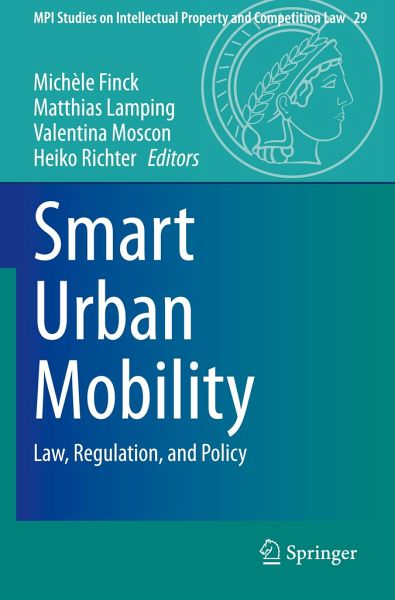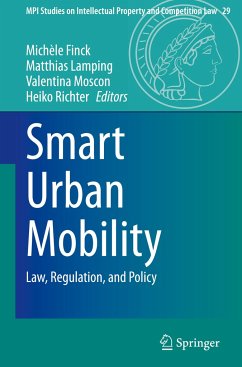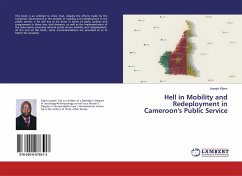
Smart Urban Mobility
Law, Regulation, and Policy
Herausgegeben: Finck, Michèle; Lamping, Matthias; Moscon, Valentina; Richter, Heiko
Versandkostenfrei!
Versandfertig in 6-10 Tagen
149,79 €
inkl. MwSt.

PAYBACK Punkte
0 °P sammeln!
This book adds a critical perspective to the legal dialogue on the regulation of 'smart urban mobility'. Mobility is one of the most visible sub-domains of the 'smart city', which has become shorthand for technological advances that influence how cities are structured, public services are fashioned, and citizens coexist. In the urban context, mobility has come under pressure due to a variety of different forces, such as the implementation of new business models (e.g. car and bicycle sharing), the proliferation of alternative methods of transportation (e.g. electric scooters), the emergence of ...
This book adds a critical perspective to the legal dialogue on the regulation of 'smart urban mobility'. Mobility is one of the most visible sub-domains of the 'smart city', which has become shorthand for technological advances that influence how cities are structured, public services are fashioned, and citizens coexist. In the urban context, mobility has come under pressure due to a variety of different forces, such as the implementation of new business models (e.g. car and bicycle sharing), the proliferation of alternative methods of transportation (e.g. electric scooters), the emergence of new market players and stakeholders (e.g. internet and information technology companies), and advancements in computer science (in particular due to artificial intelligence). At the same time, demographic changes and the climate crisis increase innovation pressure.
In this context law is a seminal factor that both shapes and is shaped by socio-economic andtechnological change. This book puts a spotlight on recent developments in smart urban mobility from a legal, regulatory, and policy perspective. It considers the implications for the public sector, businesses, and citizens in relation to various areas of public and private law in the European Union, including competition law, intellectual property law, contract law, data protection law, environmental law, public procurement law, and legal philosophy.
Chapter 'Location Data as Contractual Counter-Performance: A Consumer Perspective on Recent EU Legislation' of this book is available open access under a CC BY 4.0 license at link.springer.com.
In this context law is a seminal factor that both shapes and is shaped by socio-economic andtechnological change. This book puts a spotlight on recent developments in smart urban mobility from a legal, regulatory, and policy perspective. It considers the implications for the public sector, businesses, and citizens in relation to various areas of public and private law in the European Union, including competition law, intellectual property law, contract law, data protection law, environmental law, public procurement law, and legal philosophy.
Chapter 'Location Data as Contractual Counter-Performance: A Consumer Perspective on Recent EU Legislation' of this book is available open access under a CC BY 4.0 license at link.springer.com.














